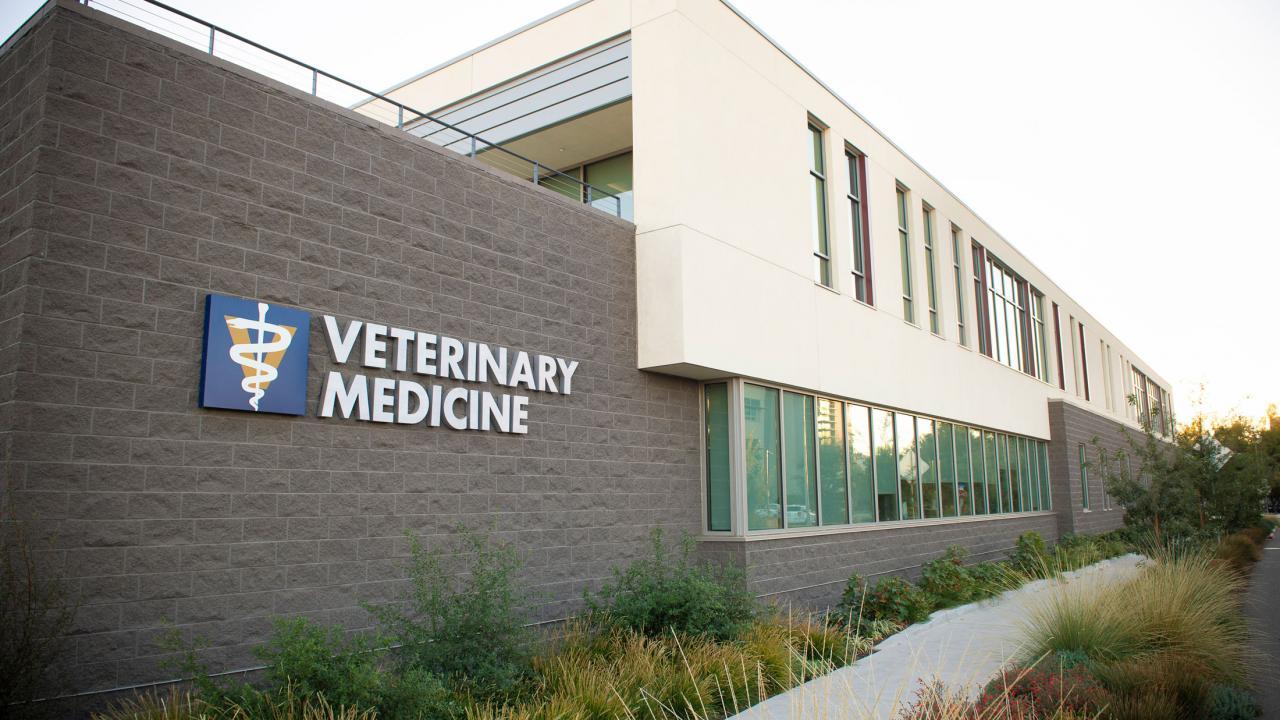
Inaugural Research Awards Promote UC Davis Collaborations
Chlamydia is the most frequently reported sexually transmitted infection (STI) in the United States (1.6 million cases annually) and yet has received little attention as a devastating disease to women’s reproductive health—let alone the funding for research that could prevent it.
That may soon change, thanks to support from the inaugural Reaching Across the Causeway awards that will fund a pilot study that aims to set the groundwork for future vaccine development. UC Davis researchers Stephen McSorley and Renee Tsolis will lead the study and comprise one of four teams chosen to receive this new award.
This unique program brings together the strength of the UC Davis Schools of Veterinary Medicine and Medicine to address complex health issues and reflects the ability to conduct groundbreaking research in our nationally ranked medical and veterinary schools, located less than 20 miles from each other across the Yolo Causeway. At least one School of Medicine (SOM) department and one School of Veterinary Medicine (SVM) department are represented by researchers on each team.
“This is an exciting initiative to foster collaborative research projects between the schools that have the potential to lead to future extramural funding and to advance One Health,” said Danika Bannasch, Associate Dean for Research and Graduate Studies at the School of Veterinary Medicine.
Each team is receiving up to $50,000 for one year of support to fund planning, preparation, and submission of grant applications. Two awards were granted to projects with a School of Medicine lead contact or PI; two awards were granted to projects with a School of Veterinary Medicine contact or lead PI.
“We decided to support these joint awards to accelerate collaborations between our highly ranked schools, recognizing the important health insights that can result from applying a comparative lens,” said Kim Barrett, Vice Dean for Research in the School of Medicine.
In the case of McSorley and Tsolis, they have previously collaborated on Salmonella research and had often talked about the lack of research on Chlamydia—despite the fact that it is the most common acquired bacterial infection globally. While an infection can present as mainly asymptomatic, the disease causes permanent harm to the female reproductive tract and can lead to pelvic pain, ectopic pregnancies and infertility.
Their pilot study will look at the effect of microbiota on chlamydia infection in a mouse model to establish more information on disease pathogenesis and how to clear the infection.
“Although our approach is pretty simple, it hasn’t ever been done before,” said McSorley, an immunologist at the veterinary school. “We have to answer the baby step questions first and acquire new knowledge that we can hopefully incorporate into a larger grant. Even if our pilot study reveals no connection between the female tract microbiota and chlamydia infection, we’ve learned something. It’s important that someone answers that question.”
Just as gut microbiota can differ between ethnic groups, the female tract microbiota does as well, but it hasn’t received much research attention. The researchers point out that Chlamydia infection is also a social justice issue. Women living in inner cities without adequate health care are at higher risk and they disproportionally represent communities of color.
“The best approach to this disease is a vaccine that could protect women for life,” said Tsolis, a microbiologist at the medical school. “It would level the playing field for women.”
They both emphasized that it was the availability of this new funding that moved their conversations into a proposal to get the research ball rolling.
“We have all resources we need at UC Davis—we just needed a little money to make it happen,” Tsolis said. “I’m really grateful for the funding because I’m excited to do the work and think it could have a big impact on science and medicine.”
The other awardees are:
- Amy Brooks-Kayal (SOM: Neurology) with Pamela Lein (SVM: Molecular Biosciences) for “Neuronal STAT3 knock-out to mitigate OP inhibitor-induced seizures.” The aim of this project is to demonstrate the potential of the STAT3 protein knock-out to protect against seizures and other neurological side effects of toxic exposure to organophosphate.
- Robert Canter (SOM: Surgery) with Christine Toedebusch (SVM: Surgical and Radiological Sciences) Abhijit Chaudhari (SOM: Radiology) and Orin Bloch (SOM: Neurological Surgery) for “Placental-derived natural killer (NK) cells to target high grade gliomas in dogs.” This team includes clinician-scientists in human and veterinary oncology, experts in brain tumors, NK immunotherapy, and novel imaging modalities who will evaluate the potential for placental-derived canine NK cells to treat dogs with aggressive brain tumors.
- Kimber Stanhope (SVM: Molecular Biosciences) with Enkhmaa Byambaa (SOM: Internal Medicine), Scott Simon (Biomedical Engineering), Ronald Li (SVM: Surgical and Radiological Sciences), Valentina Medici (SOM: Gastroenterology and Hepatology) and Oliver Fiehn (SOM: Clinical Medicine) for “Randomized controlled clinical trial to gauge the effects of dietary erythritol on platelet reactivity and vascular inflammation.” This study will look at the difference in effects between consumption of erythritol-sweetened beverages and aspartame-sweetened beverages on biomarkers associated with systemic thrombosis and vascular inflammation.
